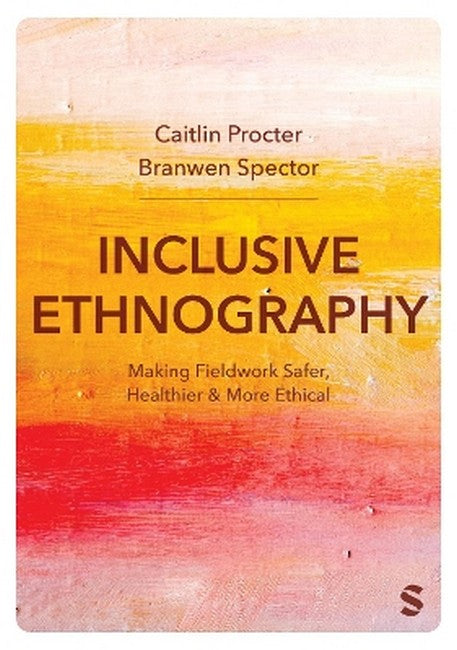Dr Caitlin Procter is a part-time Professor at the Migration Policy Centre at the European University Institute, and a Marie Sklodowska-Curie Research Fellow at the Centre on Conflict, Development and Peacebuilding at the Geneva Graduate Institute of International and Development Studies. Her work examines the experiences of children and youth in contexts of conflict and forced displacement, with a regional focus on Palestine, Jordan and Syria. She teaches on research methods and ethics and is a co-founder of The New Ethnographer. Dr Branwen Spector is a Lecturer in Social Anthropology at University College London. She conducts research on occupation, mobility, and infrastructure in the Occupied Palestinian West Bank, Ukraine, and Lebanon. She teaches on research methods, ethics, social media, and decolonisation and is a co-founder of The New Ethnographer.
Request Academic Copy
Please copy the ISBN for submitting review copy form
Description
Introduction Chapter 1: Ethnographic skills to keep you sane - Isobel Gibbin Chapter 2: Safe and Ethical Ethnography: Looking Inwards - Elena Butti Chapter 3: Cybersecurity and ethnography - James Shires Chapter 4: Giving, taking and receiving care: Disability and fieldwork - Isabel Bredenbroeker and Tajinder Kaur Chapter 5: Reflexive ethnography in intimate spaces: Motherhood and care work in and outside of the field - Elsemieke Van Osch and Sharon Louise Smith Chapter 6: Fieldwork as a Coded-As-Black Woman - Sandra Fernandez Chapter 7: Sex, sexuality and the ethnographer in the field - Shannon Philip Chapter 8: Betraying Loyalty: Managing Dis/Trust as Ethical Feminist Praxis - Hareem Khan Chapter 9: Social Media as Method - Branwen Spector and Theodora Sutton Chapter 10: Doing fieldwork in and on contexts of violence and instability - Caitlin Procter Chapter 11: Fieldwork and Feeled-Work: Addressing Mental Health in Ethnography - Emma Louise Backe and Alex Fitzpatrick Chapter 12: Participatory Ethnographic Methods: Collaborative data production, analysis, and ethnographic representation - Anne E. Pfister Chapter 13: Going against the Grain in Writing Ethnography - Ezgi Gueler Concluding recommendations for educators
Inclusive Ethnography offers a broad range of practical and provocative reflections on contemporary ethnography. The book encourages students and established ethnographers to consider the many challenges ethnographic research can entail, to learn from the accounts it presents, and to develop responsive and ethical approaches in their own practices. It is an essential resource -- Dr Christopher Bunn A strength of ethnographic method is its affordance for capturing social phenomena in a human way; in a way that recording devices alone simply cannot. Inclusive Ethnography brings this humanity into focus, celebrating diversity and difference by demonstrating the human contingencies through which field relations and data representation are handled. Each chapter imparts practical knowledge through powerful personal accounts, offering a timely guide for (and from) traditionally overlooked researchers and research. -- Dr Jonathan Ablitt Inclusive Ethnography shares lessons learnt from the ethnographic field from a diverse range of contributors. It offers a refreshingly honest, yet academically rigorous, account of methodological, ethical and substantive issues encountered in conducing ethnographic work. Great for beginners and experts alike! -- Anna Galazka

